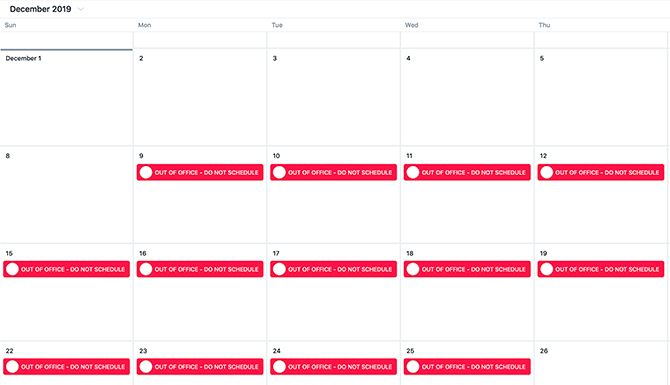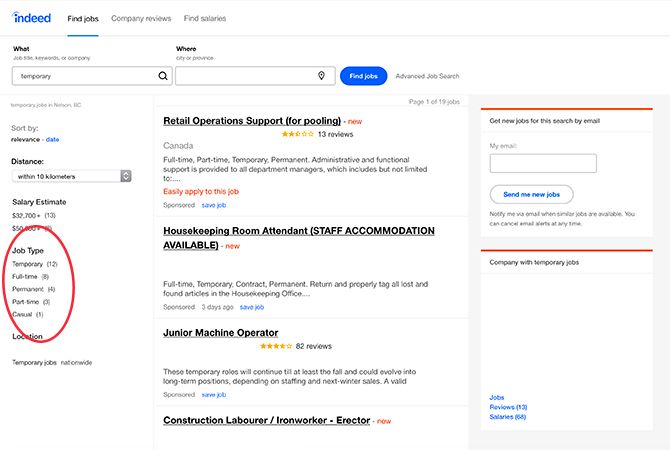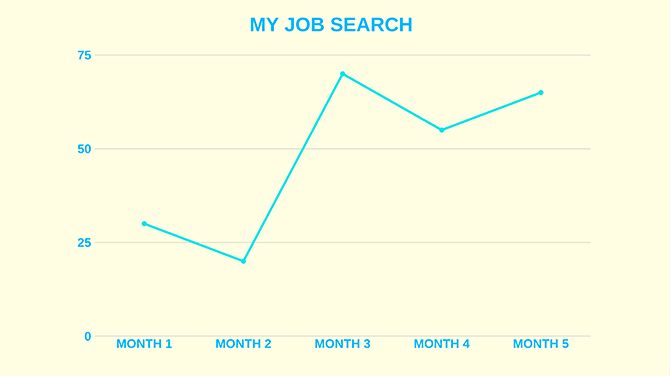Job searching can be nerve-wracking. A lot of it comes down to luck and timing, even if you have a stellar resume and skills. However, there are ways you can increase your chances and shorten your job search.
Those ways are through "timing"---literally. If you've got the option to do so, you should avoid putting out your resumes during specific times of the year where there is little to no hiring activity.
To avoid those downturns, here are the worst times of the year to job search, and why. We'll also cover what to do if you find yourself looking for employment during a slump.
The Worst Time of Year: November-December
November and December can be very slow hiring months.
Job posts do go up, and according to the BBC the best time to search for a job is "Tuesday mornings in December". But by the time the holidays swing around, many companies are operating at half-capacity. Hiring managers are either buried under year-end tasks or already on their break. If you work in a seasonal industry, most temp workers have already been hired.
Additionally, some companies simply don't have the money to hire any more people. They're waiting for January when they'll get access to their new yearly budget. This is why you may see job postings go up, but you don't hear back about your applications until January rolls around.
What to do instead of job searching:
- If you're job hunting during this period, use December to tweak your resume and cover letter. That way you can hit the ground running in January.
- You can also use this time to spruce up your online social media accounts, such as LinkedIn. It's a good, short task that can be done in a couple of weeks.
If you're looking for more tips, here's how to create an amazing LinkedIn profile.
The Second Worst Time of Year: June-July-August
June, July, and August are the second-worst times of the year that you can job search.
This is because hiring managers are on vacation, and decisions can't be made without their approval. If you're working in a seasonal industry such as tourism, temp positions will already be filled.
Those jobs that do get posted during the summer months usually target students. A lot of them are entry level or minimum wage. Because of the influx of recently graduated students, the positions that are being posted might not be long-term.
With students competing for these scarce jobs, the competition for employment will also be fierce. It might not be tenable if you're looking for a gig that's full-time or long-term.
What to do instead of job searching:
- The summer months can feel like a drag, so one of the best things you can do---beyond general resume edits---is take on extra training to increase your chances.
- Start personal summer projects to keep yourself busy. This helps to improve your portfolio and skills.
- Overall, look for ways to make yourself more competitive in the workforce.
Is your job search currently stalled? Here are some steps to get your job hunt back on track, especially if you end up looking during the summer.
The Best Times of Year for Job Searching
While the focus of this article is how to avoid the worst times of the year, we'd be remiss if we didn't mention the best times of the year to job hunt, too.
January and February
One of the best times of the year is January heading into February. You might think that these months are slow, and in the first two weeks of January, this is definitely the case. People are still coming back from their holidays, and they have to clear out their inboxes.
During this time of the year, however, upper management is back in the office with a full budget to hire people. They'll also be looking to fill those last-minute positions that were posted in December.
The good news about this time of the year is that the positions that show up are often long-term and full-time, as that's what the budget allows for. So if you're looking for top-tier jobs this is definitely the time to strike.
The best thing you can do for yourself during this time period? Apply, apply, apply. Send out your resumes like your life depends on it because those good jobs can dry up fast.
The Spring Rush
The spring rush---between March to May---is the second-best time to go job searching. During this time period, it's a mix of entry-to-mid-level positions, as companies are hoping to fill up any spots that did not get snapped up during the winter splurge.
Unfortunately---because this hiring period coincides with the same time that a lot of students get out of university---there will be a lot of competition. These positions will go quickly due to the high demand, so make sure to take advantage of this rush and send out your resumes before you head into the summer slump.
Back to School
The final time to get hired during the year is the "back to school" fall rush before the winter holidays, roughly from September to October. There's a lot of new products being launched during this time period, and a lot of demand for temporary workers if you work in a seasonal field.
Because of the nature of these jobs being offered (often temp), many of the positions will not be the full-time, long-term jobs that many people crave. Companies are holding off on those positions until the new year.
That said, you can definitely find employment during this time period. Our recommendation is to take a look and see what's out there.
Time Your Chances
It's important to note that these times are not a hard and fast rule. Some companies do buck the trend and post during the off season. However it's much rarer, and that's why your chances of finding something decrease.
With that in mind, it's best to view this article as a general guide to help you budget your time even as you keep knocking on doors. If you do apply strategically, you'll be able to shorten that job search by playing to a long-term strategy.
Looking for more tips? Here's how to use Indeed to its full job-searching potential.




